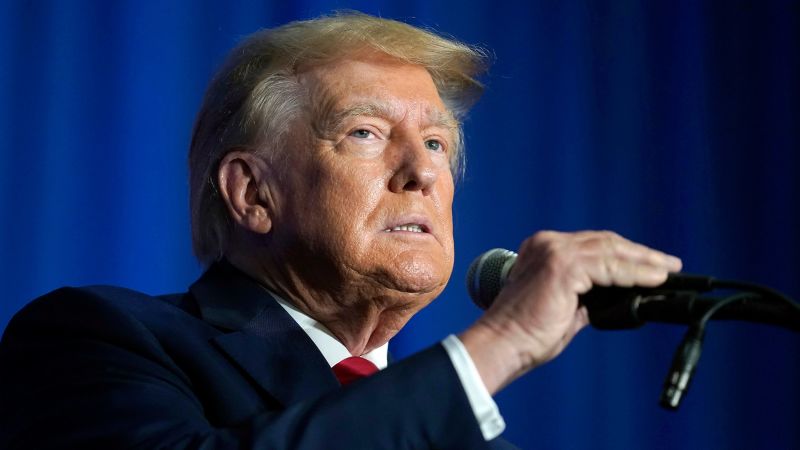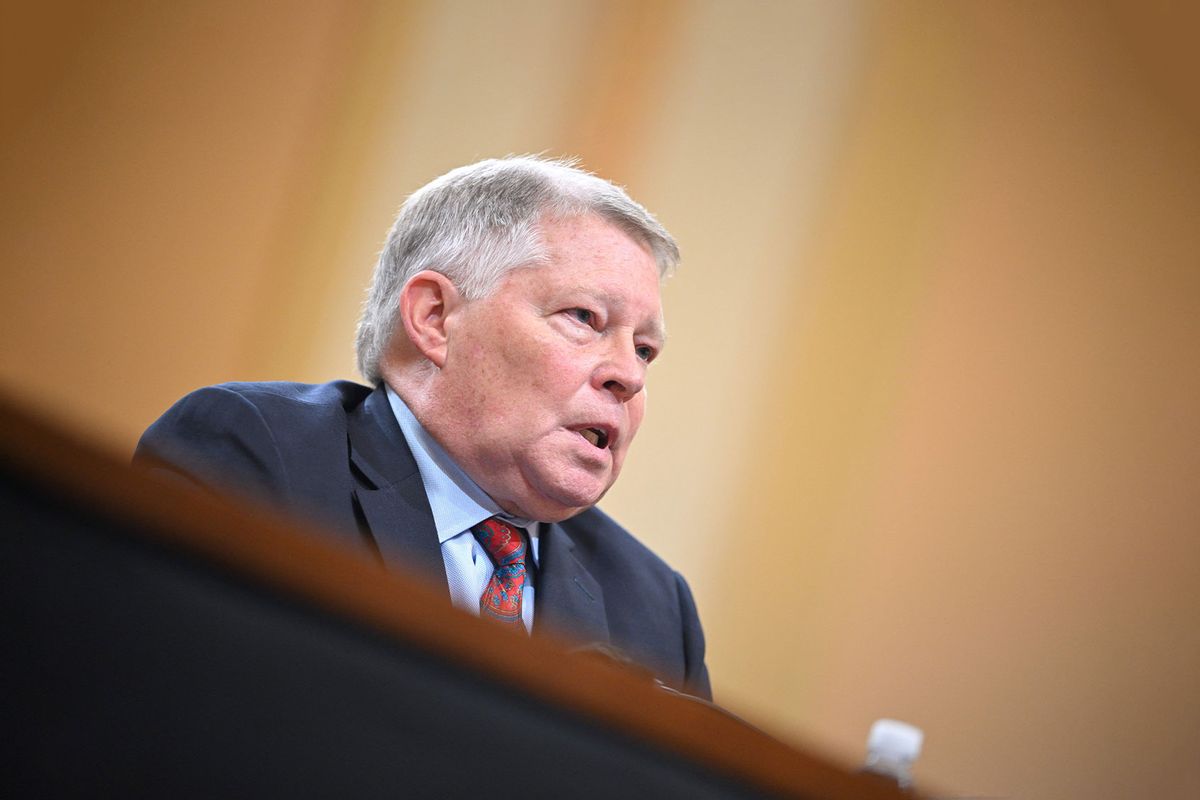Conservatives – despite their limited federal elected power – racked up another huge win in the great political battle of the early 21st century.
The Supreme Court’s gutting of affirmative action in college admissions on Thursday toppled another pillar of America’s liberal social infrastructure. Two more setbacks followed on Friday: the high court struck down the Biden administration’s student loan forgiveness program and dealt a blow to LGBTQ rights when it sided with a Christian web designer in Colorado who refuses to create websites to celebrate same-sex weddings out of religious objections.
Democrats have had their successes over the last 20 years – including earlier this month with decisions ordering the redraw of Alabama’s congressional map and rejecting a Trump-backed election law theory – but it often seems as though conservatives have the momentum.
Republicans only control one chamber of Congress, and narrowly so, while Democrats hold the White House and the Senate. And yet Thursday’s ruling further weakened a core principle of Democratic politics that unites the party’s presidents dating to Franklin Roosevelt – that the government should use its power to ease social injustices and lift up the disadvantaged. Civil rights advocates saw the decision as re-erecting barriers based on race that their forbears fought for decades to remove and a step back into tortured history.
Originalist conservatives, however – who argue that the text of the Constitution makes no consideration for prevailing social or racial realities – say justices upheld a core founding principle that everyone is created equal.
The decision saying colleges can no longer take race into account as a specific basis for admissions – programs that advocates said had helped elevate underrepresented Black and Latino students in higher education – sent shockwaves across the country.
It was a generational decision comparable to another precedent-busting move a year ago, when the court’s conservative majority took away the constitutional right to an abortion by throwing out the half-century-old, society-molding decision of Roe v. Wade.
Both rulings, and a flurry of other right-wing jurisprudence by the court’s bold new majority – often on freedom of religion cases that please conservative Christians – are the product of decades of activism by the conservative judicial movement. Unlike liberals, right-wing legal activists prioritized the ideological reconfiguring of the high court as a litmus test in federal elections at all levels and fast-tracked cases on key issues through courts to exploit the Supreme Court’s new makeup.
Now, the nature of America itself is being remade in sweeping doses of conservative doctrine handed down in early summer morning bombshells each year.
The wider political battle
The court’s activism is being complimented by increasingly radical conservative legislatures in many states. Those bodies are reshaping laws in other areas – firearms regulations, for instance – often with the support of the judicial nominees of Republican presidents. Any future Republican president who also has a GOP Congress is likely to try to take advantage of the court’s rightward march to pass laws on abortion and other issues that would further fundamentally change the nature of American life. One Republican presidential candidate, Florida Gov. Ron DeSantis, is pioneering an assault on transgender rights and the teaching of sexuality in schools that he has vowed to replicate nationwide if he wins the White House.
Republicans – as seen in the reaction to Thursday’s decision – argue that the court is merely dismantling what they see as an aberrant set of laws and jurisprudence that it itself contradicts everything for which they believe America stands. They are embracing, for instance, Justice Clarence Thomas’ concurrence in the majority opinion in the affirmative action decision that argued that “racialism simply cannot be un-done by different or more racialism” to benefit minorities since it would contradict the constitutional principle that everyone is born equal.
“Today’s decision, in combination with Dobbs, serve as a triumphant return to restoring our tattered Constitution,” Conservative Political Action Coalition chairman Matt Schlapp said in a statement.
Critics of the decision argue that the Thomas position perversely ignores the reality of a nation where racial discrimination and the inequality of opportunity still run deep.
An earlier watershed that set off a backlash
The affirmative action and Dobbs decisions recall another early summer moment, in 2015, when it appeared that the country was heading in an opposite direction. The Supreme Court ruled that June that same-sex couples could marry in all 50 states and upheld the Affordable Care Act.
At the time, it seemed as though political and social conventions were being swept away in a validation of the grassroots change that then-President Barack Obama had championed.
“Sometimes, there are days like this, when that slow, steady effort is rewarded with justice that arrives like a thunderbolt,” Obama said, referring to the legalization of same-sex marriage.
Eight years on, the thunderbolts are flying in a more reactionary direction. And President Joe Biden’s view of the conservative majority on the bench could hardly be more dark.
“This is not a normal court,” Biden said.
The comparison between two banner moments for the liberal and conservative movements helps explain a major theme of modern American politics: the clash between a more diverse, socially liberal and sometimes more secular society embodied by Obama/Bidenism and the backlash engineered by ex-President Donald Trump and conservatives, who believe that such social progress represents an existential threat to their beliefs.
It plays into the idea that the country is increasingly split between Democratic and Republican bastions. The divide lives on a national map but is also especially pronounced within states ideologically separated between liberal urban areas and conservative rural regions. Recent clashes over race and gun politics between liberal lawmakers and conservative majorities in state legislatures like Tennessee’s, for example, have exemplified this split.
Both sides of the political aisle raise the fear that America is in danger of being destroyed. But it is especially pronounced among the Republican base.
In recent years, the party’s blind loyalty to Trump’s radicalism – especially his election lies – has caused it to even challenge the structure of democracy. A sense of national crisis and imminent political extinction, for example, ran through Trump’s rhetoric in the aftermath of the 2020 election, prompting some of his followers to use violence as a way of settling their political grievances on January 6, 2021.
Liberal fury over the Supreme Court
Conservative Supreme Court decisions over the last two years have been especially hard for liberals to accept because they believe that the current majority is ill gotten.
The right’s dominance of the court happened in large part because then-Senate Majority Leader Mitch McConnell refused to even grant a confirmation hearing to Obama’s final pick for the top bench, Merrick Garland, who now serves as attorney general in the Biden administration. This allowed Trump to name Justice Neil Gorsuch as his first Supreme Court nominee in 2017. But McConnell later turned his back on his own questionable principle that Supreme Court nominees should not be elevated in an election year by rushing through the confirmation of Trump’s final pick, Amy Coney Barrett, in 2020 – which enshrined the current 6-3 conservative majority.
The move not only confirmed Trump’s status as a consequential president whose influence will be felt decades after he left office. It cemented McConnell among the ranks of the most significant Republican Party figures in decades and ensured conservative policies will endure even under Democratic presidencies and congressional majorities.
Recent revelations about questionable ethics practices by some of the conservative justices have further fueled fury about the legitimacy of the court among liberals.
But not all of the court’s recent decisions have infuriated the White House and Democrats. Earlier this week, for instance, liberals were hugely relieved when the court rejected a long-dormant legal theory that held that state courts and other state entities have a limited role in reviewing election rules established by state legislatures when it comes to federal elections. The so-called Independent State Legislature Theory, a favorite of the Trump campaign, had led to fears that Republican state legislatures in some states could simply decide how to allocate electoral votes regardless of results.
Still, the broad trajectory of the court – on issues including gun control, race, business, regulation, climate and many other issues – is firmly to the right.
"politic" - Google News
July 01, 2023 at 12:27AM
https://ift.tt/Y4k5dgp
Conservatives are on a roll in their quest to remake America through the courts - CNN
"politic" - Google News
https://ift.tt/1WFbzBU
https://ift.tt/ECJs78g






/cloudfront-us-east-1.images.arcpublishing.com/bostonglobe/VNG7YMZTRWJ5WBFTJ5NVETPCQI.jpg)